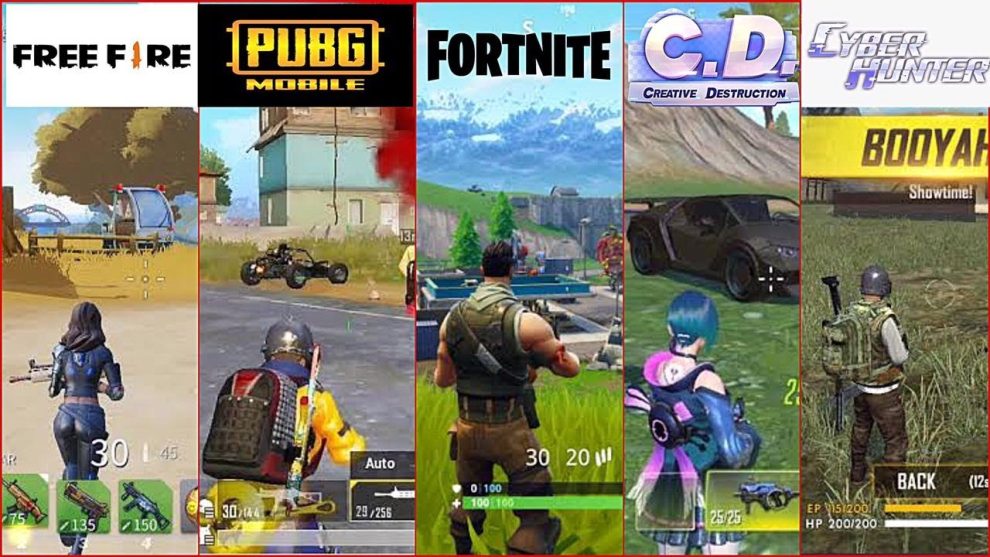The gaming landscape has witnessed a meteoric rise in the popularity of battle royale (BR) games over the past few years. These high-octane experiences, where players fight for survival in a shrinking battlefield, have captivated audiences worldwide. But how did this genre explode onto the scene, and what key innovations shaped its evolution? This post delves into the journey – from PlayerUnknown’s Battlegrounds (PUBG)’s groundbreaking debut to Apex Legends‘ unique take on the formula.
Humble Beginnings: The Seeds of the Battle Royale Genre
While BR games may seem like a recent phenomenon, their roots stretch back further than you might think. Early inspiration came from the 2000 Japanese film “Battle Royale,” where students are forced to fight to the death on a deserted island. The concept later found its way into game modifications (mods) for titles like DayZ and Arma 3, where players were pitted against each other in survival-oriented scenarios. These mods laid the groundwork for what was to come.
PUBG: Sparking the Firestorm
In 2017, PlayerUnknown’s Battlegrounds (PUBG), developed by Brendan “PlayerUnknown” Greene, emerged as the game that truly ignited the BR craze. PUBG offered a realistic and tactical experience, emphasizing strategic weapon choices, map awareness, and positioning. Players parachuted onto a large map, scavenging for weapons and equipment, all while battling towards the sole survivor title. The game’s tense atmosphere, coupled with its accessible yet deep gameplay, resonated with a massive audience, propelling it to become a worldwide cultural phenomenon.

Fortnite: A Colorful Twist on the Formula
While PUBG dominated the PC market, Epic Games entered the fray with Fortnite in 2017. Initially offering a cooperative “Save the World” mode, Fortnite later introduced a free-to-play BR mode that took the genre by storm. Unlike PUBG’s gritty realism, Fortnite embraced a vibrant, cartoony aesthetic, attracting a broader player base. The game also introduced innovative building mechanics, allowing players to construct structures for defense and strategic movement – adding a unique layer of depth to the core BR experience.
Beyond the Basics: Diversification and Innovation
The success of PUBG and Fortnite sparked a wave of BR game development. Titles like Call of Duty: Warzone and Apex Legends entered the arena, each bringing new twists to the formula. Call of Duty: Warzone capitalized on the existing brand recognition and fast-paced action of the Call of Duty franchise, while Apex Legends introduced a hero-based system with unique characters possessing distinct abilities. This diversification showcased the genre’s potential to cater to diverse preferences – attracting players seeking different flavors of the BR experience.
The Evolving Landscape: Embracing Change and Looking Ahead
The BR genre continues to evolve rapidly, with developers constantly experimenting and introducing new features. Games like Fall Guys offered a lighter take on the genre, emphasizing obstacle courses and wacky challenges rather than direct combat. Meanwhile, established titles like Fortnite adopt seasonal updates – introducing fresh content and gameplay changes to keep the experience dynamic and engaging for players.
The Future of Battle Royale: Where Does the Genre Go From Here?
As the BR genre matures, several key trends emerge:
- The focus on competitive integrity and anti-cheat measures is crucial to ensure fair play and maintain player trust.
- Developers are exploring narrative integration and esports potential – fostering deeper player engagement and creating exciting competitive opportunities.
- Looking ahead, the BR genre has the potential to further expand its reach by incorporating cross-platform play and exploring innovative new game modes beyond the traditional “last player standing” format.
Conclusion: A Genre Forged in Competition and Thriving on Innovation
The journey of BR games, from the humble beginnings of niche mods to the current diverse landscape, is a testament to the genre’s adaptability and potential. With its emphasis on strategic thinking, quick reflexes, and thrilling competition, BR has captured the imaginations of players worldwide. As developers continue to push boundaries, the future of BR promises exciting new experiences and a continuously evolving landscape for players to explore and conquer.













Add Comment